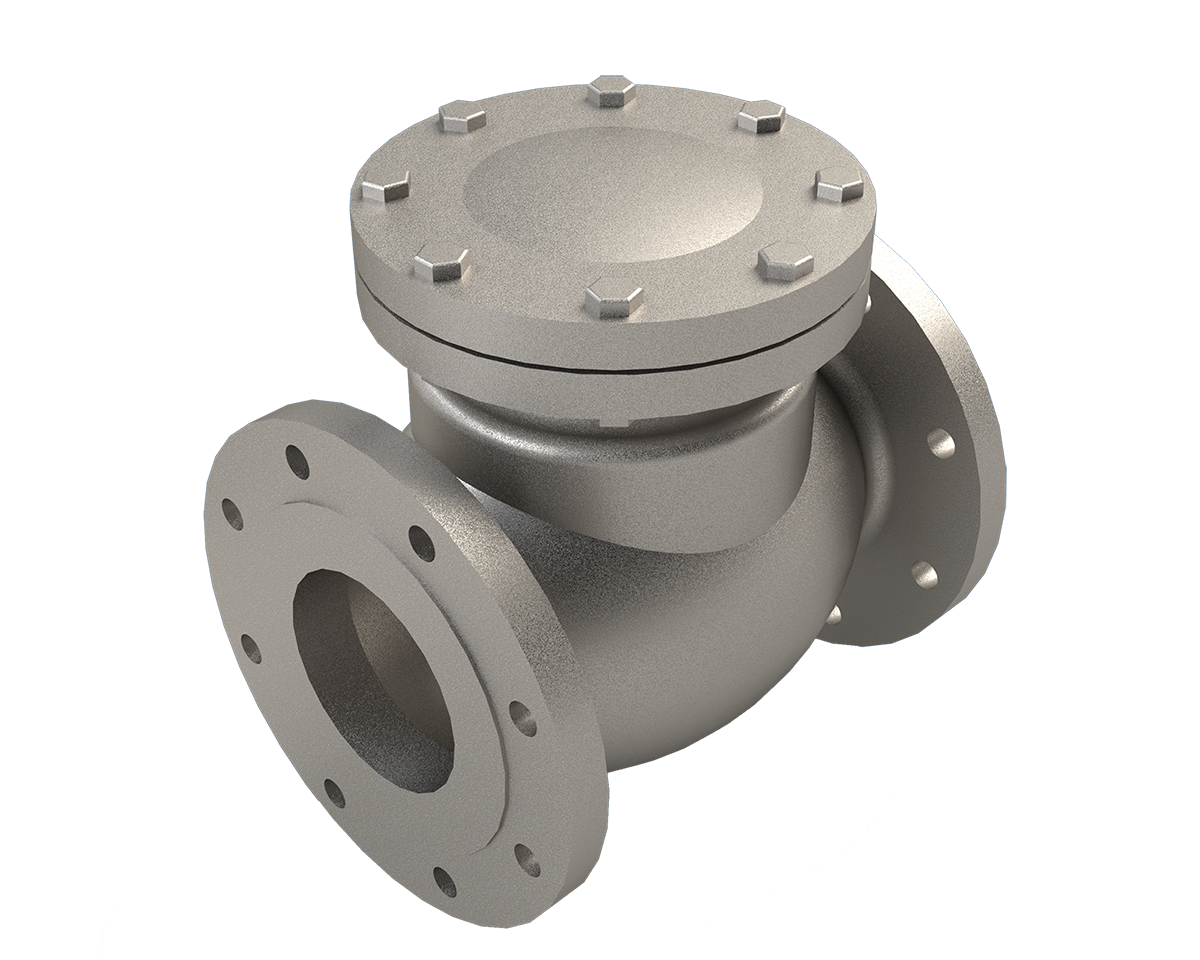Flanged gate valves are a type of valve used to control the flow of fluids or gases in pipelines. They are commonly used in industries such as oil and gas, water and wastewater, and chemical processing. Flanged gate valves are designed to be durable and long-lasting, and they offer precise control over the flow of fluids or gases.
Here are some important things to know about flanged gate valves and their uses:
Construction: Flanged gate valves are typically made from cast iron, ductile iron, or stainless steel. They consist of a gate or wedge that moves up and down to control the flow of fluid or gas. The gate is held in place by two seats on either side of the valve body, and when the gate is lowered, it forms a seal with the seats to stop the flow of fluid or gas.
Flanged ends: Flanged gate valves are designed with flanged ends that allow them to be easily connected to pipelines. The flanges are typically made from the same material as the valve body and are bolted to the pipeline to create a secure connection.
Size and pressure rating: Flanged gate valves are available in a wide range of sizes and pressure ratings to meet the needs of different applications. They can be used in systems with pressures ranging from low to high, and they are available in sizes ranging from a few inches to several feet in diameter.
Applications: Flanged gate valves are used in many different applications, including water and wastewater treatment, oil and gas pipelines, chemical processing, and power generation Understanding Flanged Gate Valves and Their Uses . They can be used to control the flow of liquids or gases, and they are designed to be reliable and long-lasting.
Advantages: Flanged gate valves offer several advantages over other types of valves. They provide precise control over the flow of fluids or gases, they are durable and long-lasting, they are easy to install and maintain, and they can be used in a wide range of applications.
In summary, flanged gate valves are a durable and reliable option for controlling the flow of fluids or gases in pipelines. They are available in a range of sizes and pressure ratings, and they can be used in many different applications. By understanding the key features and benefits of flanged gate valves, you can make informed decisions when selecting valves for your industrial applications.
How do flanged gate valves compare to other types of valves?
Flanged gate valves offer several advantages compared to other types of valves.
Here are some comparisons between flanged gate valves and other types of valves:
Precise control: Flanged gate valves offer precise control over the flow of fluids or gases. The gate or wedge can be moved up or down to control the flow, allowing for accurate regulation of the flow rate. In contrast, other types of valves such as ball valves or butterfly valves may not offer the same level of precision.
Durability: Flanged gate valves are designed to be durable and long-lasting. They are typically made from cast iron, ductile iron, or stainless steel, which are all materials that are resistant to corrosion, wear and tear, and other environmental factors. In contrast, other types of valves may be more prone to damage from environmental factors.
Size and pressure rating: Flanged gate valves are available in a wide range of sizes and pressure ratings to meet the needs of different applications. They can be used in systems with pressures ranging from low to high, and they are available in sizes ranging from a few inches to several feet in diameter. In contrast, other types of valves may have more limited size and pressure rating options.
Ease of maintenance: Flanged gate valves are designed to be easy to maintain. They can be disassembled and cleaned, and the gate or wedge can be easily replaced if necessary. In contrast, other types of valves may be more difficult to maintain or repair.
Cost-effective: Flanged gate valves are cost-effective compared to other types of valves. They are made from inexpensive materials and can be manufactured in large quantities, making them an affordable option for many applications. In contrast, other types of valves may be more expensive to manufacture and may require more maintenance.
Overall, flanged gate valves offer many advantages compared to other types of valves. They provide precise control over the flow of fluids or gases, are durable and long-lasting, are available in a wide range of sizes and pressure ratings, are easy to maintain, and are cost-effective.
